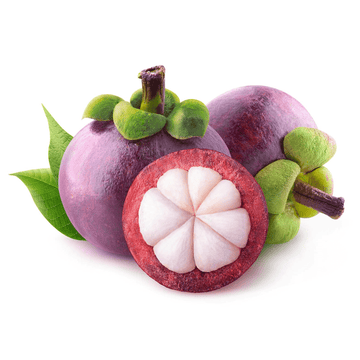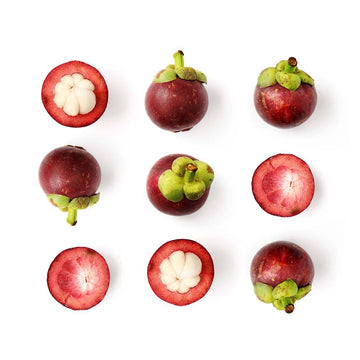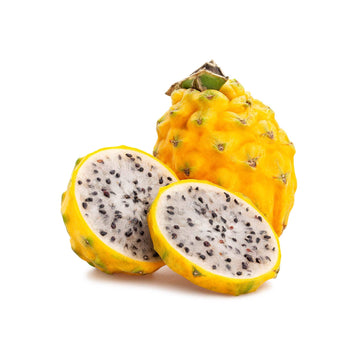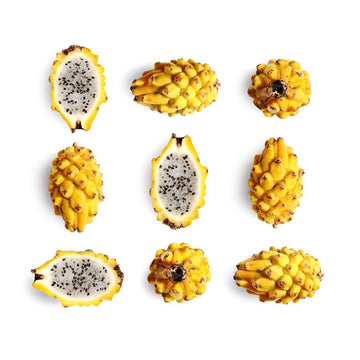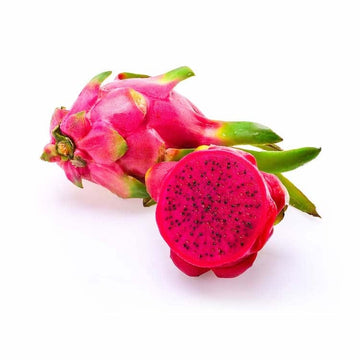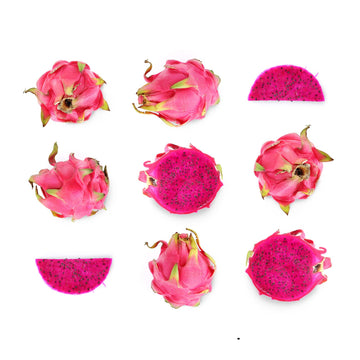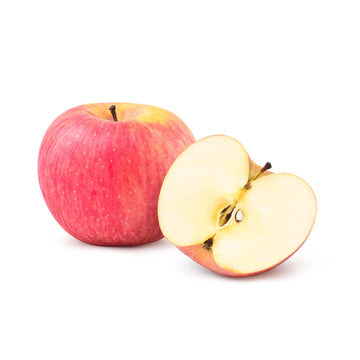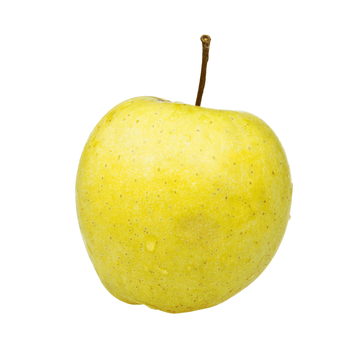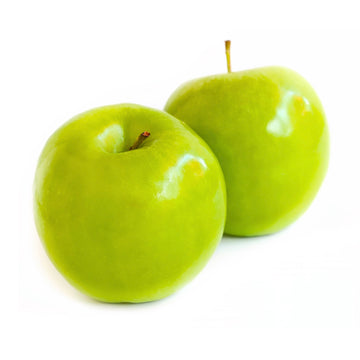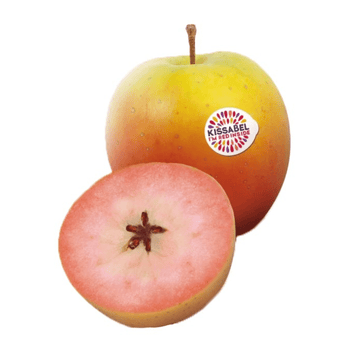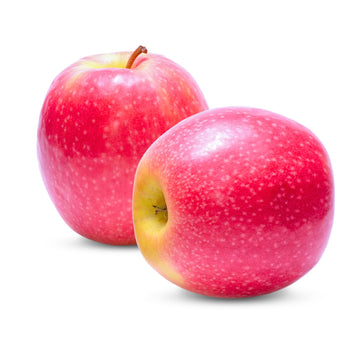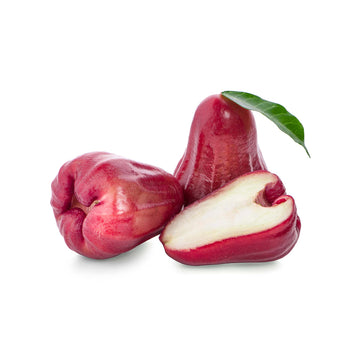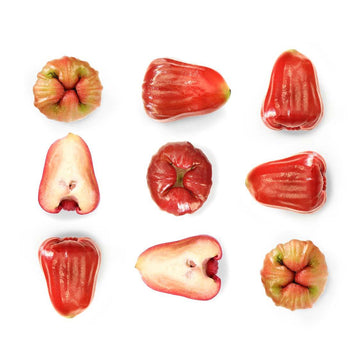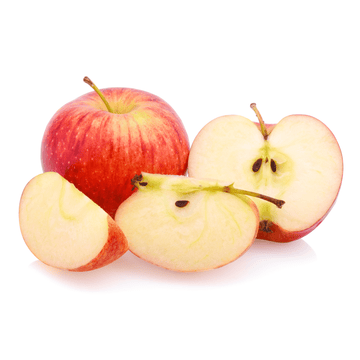The Best Fruits for IBS: A Comprehensive Guide
Irritable Bowel Syndrome (IBS) affects millions worldwide, causing discomfort and disrupting daily life. For those navigating this condition, diet plays a pivotal role in managing symptoms.
Fruits, with their natural sugars, fibre, and nutrients, can be a double-edged sword—some trigger flare-ups, while others soothe the gut.
This blog post explores IBS in depth, covering its definition, causes, triggers, effects, signs, and treatment options. We’ll also highlight ten exotic fruits that are gentle on the digestive system and beneficial for IBS, detailing their origins, flavours, textures, and unique advantages.
Understanding Irritable Bowel Syndrome (IBS)
What Is IBS?
IBS is a chronic gastrointestinal disorder characterised by a group of symptoms affecting the large intestine. It’s classified as a functional disorder, meaning there’s no structural damage to the digestive tract, but its function is impaired. Symptoms vary in severity and can include abdominal pain, bloating, gas, diarrhoea, constipation, or alternating bouts of both. IBS is often categorised into three types: IBS-D (diarrhoea-predominant), IBS-C (constipation-predominant), and IBS-M (mixed).
What Causes IBS and What Triggers Flare-Ups?
The exact cause of IBS remains elusive, but it’s likely multifactorial. Research points to several contributing factors:
-
Gut-Brain Axis Dysfunction: The gut and brain communicate bidirectionally. Stress, anxiety, or depression can disrupt this connection, altering gut motility and sensitivity.
-
Gut Microbiota Imbalance: An altered microbiome may contribute to inflammation or poor digestion.
-
Visceral Hypersensitivity: Some individuals with IBS have heightened sensitivity to gut sensations, amplifying pain from normal digestive processes.
-
Motility Issues: Abnormal contractions in the intestines can lead to diarrhoea, constipation, or both.
-
Infections or Inflammation: A history of gastroenteritis or low-grade inflammation may trigger IBS in some cases.
Triggers for IBS flare-ups vary individually but commonly include:
-
Dietary Factors: High-FODMAP foods (fermentable oligosaccharides, disaccharides, monosaccharides, and polyols), such as apples, pears, or dairy, can provoke symptoms. Spicy, fatty, or processed foods are also culprits.
-
Stress: Emotional or physical stress can exacerbate symptoms.
-
Hormonal Changes: Menstruation or hormonal fluctuations may worsen IBS, particularly in women.
-
Medications: Certain drugs, like antibiotics, can disrupt gut flora.
-
Caffeine and Alcohol: These can stimulate the gut excessively.
Effects of IBS
IBS can significantly impact quality of life. Beyond physical discomfort, it often leads to:
-
Emotional Strain: Chronic symptoms can cause anxiety, embarrassment, or depression, especially when flare-ups interfere with social or work commitments.
-
Nutritional Deficiencies: Fear of triggering symptoms may lead to restrictive diets, limiting nutrient intake.
-
Disrupted Daily Life: Unpredictable symptoms can make travel, dining out, or maintaining routines challenging.
-
Sleep Disturbances: Abdominal pain or urgency may disrupt sleep, leading to fatigue.
While IBS isn’t life-threatening, its chronic nature demands ongoing management to minimise its toll.
Signs You Might Have IBS
Recognising IBS involves identifying patterns of symptoms, which may include:
-
Abdominal Pain or Cramping: Often relieved after a bowel movement.
-
Bloating or Gas: A feeling of fullness or visible abdominal distension.
-
Diarrhoea or Constipation: Sometimes alternating between the two.
-
Mucus in Stool: A common but non-alarming sign.
-
Feeling of Incomplete Evacuation: Sensation that a bowel movement isn’t fully complete.
Symptoms typically persist for at least three months, occurring at least once a week. If you experience weight loss, blood in stool, or symptoms waking you at night, consult a doctor, as these may indicate other conditions like inflammatory bowel disease or colorectal cancer.
Treating and Minimising IBS
While there’s no cure for IBS, a multifaceted approach can reduce symptoms:
-
Dietary Adjustments: A low-FODMAP diet, developed by Monash University, is effective for many, restricting foods high in fermentable carbohydrates. Reintroducing foods gradually helps identify triggers. Working with a dietitian ensures nutritional balance.
-
Lifestyle Changes: Regular exercise improves gut motility and reduces stress. Adequate sleep and hydration are also key.
-
Stress Management: Techniques like mindfulness, yoga, or cognitive-behavioural therapy (CBT) can calm the gut-brain axis.
-
Medications: Antispasmodics (e.g., peppermint oil), laxatives, or antidiarrheals may be prescribed for specific symptoms. Low-dose antidepressants can help with pain and mood.
-
Probiotics: Certain strains may restore gut flora balance, though evidence is mixed.
-
Psychological Therapies: Gut-directed hypnotherapy has shown promise in reducing symptom severity.
Diet is a cornerstone of IBS management, and fruits, when chosen wisely, can be both nourishing and gut-friendly. Below, we explore ten exotic fruits that are low in FODMAPs or otherwise beneficial for IBS, offering variety and flavour without aggravating symptoms.
10 Exotic Fruits Beneficial for IBS
1. Dragon Fruit (Pitahaya)
-
Origin: Native to Central and South America, dragon fruit grows on various cactus species, thriving in tropical climates like Vietnam and the Philippines.
-
Flavour and Texture: Its mild, subtly sweet flavour resembles a cross between kiwi and pear. The creamy flesh is studded with tiny, edible black seeds, offering a soft, juicy texture.
-
Benefits for IBS: Dragon fruit is low in FODMAPs, making it a safe choice for most IBS sufferers. Its high water content aids hydration, crucial for preventing constipation in IBS-C. The soluble fibre gently supports bowel regularity without overwhelming the gut.
-
Interesting Fact: Its vibrant pink or yellow skin, with green scales, makes it a visual standout, but only the flesh is eaten.
2. Kiwano (Horned Melon)
-
Origin: Hailing from Africa, particularly the Kalahari Desert, kiwano is now cultivated in New Zealand and Australia.
-
Flavour and Texture: The bright orange, spiky exterior hides a jelly-like, lime-green flesh with cucumber-like seeds. Its tart, refreshing taste blends banana, cucumber, and citrus notes.
-
Benefits for IBS: Kiwano’s low FODMAP profile and high water content make it gentle on the gut. Its soluble fibre may ease constipation, while its minimal fructose reduces bloating risk.
-
Interesting Fact: Traditionally used by African tribes for hydration in arid regions, kiwano’s seeds are edible, adding a slight crunch.
3. Passion Fruit
-
Origin: Native to South America, particularly Brazil and Paraguay, passion fruit is grown in tropical regions worldwide.
-
Flavour and Texture: The tough outer rind encases juicy, seed-filled pulp with a tart, sweet flavour, evoking citrus and guava. The seeds are crunchy but edible.
-
Benefits for IBS: Passion fruit is low in FODMAPs when consumed in moderation (about 1-2 fruits). Its soluble fibre supports digestion, and antioxidants may reduce gut inflammation, a factor in some IBS cases.
-
Interesting Fact: The name stems from Spanish missionaries who saw its flower as a symbol of the Passion of Christ.
4. Rambutan
-
Origin: Native to Southeast Asia, particularly Malaysia and Indonesia, rambutan is a tropical staple.
-
Flavour and Texture: Beneath its hairy, red-green skin lies translucent, juicy flesh with a sweet-tart flavour, similar to lychee but less floral. The texture is soft and slightly chewy.
-
Benefits for IBS: Rambutan is low in FODMAPs and rich in vitamin C, which supports gut healing. Its moderate fibre content aids digestion without triggering diarrhoea or bloating.
-
Interesting Fact: The name “rambutan” comes from the Malay word for “hair,” referring to its spiky exterior.
5. Starfruit (Carambola)
-
Origin: Originating in Southeast Asia, starfruit is widely grown in tropical areas like India and the Caribbean.
-
Flavour and Texture: When sliced, its star-shaped cross-sections reveal crisp, juicy flesh. The flavour ranges from tart to mildly sweet, like a blend of apple and grape.
-
Benefits for IBS: Starfruit is low in FODMAPs and easy to digest. Its high water content and gentle fibre help regulate bowel movements, particularly for IBS-C.
-
Interesting Fact: Unripe starfruit is green and sour, while ripe ones turn yellow and sweeter.
Conclusion
Living with IBS requires careful navigation of diet and lifestyle, but it doesn’t mean sacrificing flavour or nutrition. The ten exotic fruits highlighted—dragon fruit, kiwano, passion fruit, rambutan, starfruit, mangosteen, guava, papaya, durian, and custard apple—offer IBS-friendly options that are low in FODMAPs, gentle on the gut, and packed with vitamins, hydration, and fibre. Their unique flavours and textures can add excitement to your diet while supporting digestive health.
Managing IBS is a journey of trial and error. Start with small portions of these fruits, monitor your body’s response, and consult a dietitian to tailor your diet. Beyond diet, prioritise stress reduction, exercise, and hydration to keep symptoms at bay. With the right strategies, you can enjoy a vibrant, varied diet and reclaim control over your gut health, one delicious bite at a time.

